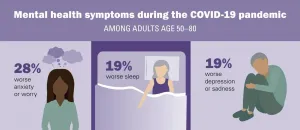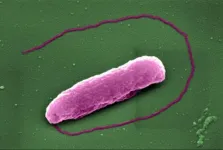(Press-News.org) Cancer of the colon and rectum is one of the deadliest forms of cancer, and has in recent years affected growing numbers of young people. In the largest registry study to date, researchers at Karolinska Institutet in Sweden and Harvard University in the USA demonstrate a possible connection between colorectal polyps in close relatives and the risk of developing colorectal cancer. The study, which is published in the British Medical Journal, is of potential consequence for different countries' screening procedures.
Colorectal cancer is the second deadliest form of cancer in the world, according to the World Health Organisation (WHO). While lifestyle factors, such as overweight and sedentariness, increase the disease risk, there is also a known hereditary factor.
Most people diagnosed with the disease are over 65, but in a growing number of countries the proportion of young people affected is increasing.
Local colorectal cancer can be treated with a good prognosis; prospects are much worse, however, for patients with metastases.
In Sweden, people over 65 are offered colonoscopy screening, but more knowledge is needed about which individuals should be offered this prophylactic examination.
The disease is preceded by polyps in the mucosa of the colon. Researchers at Karolinska Institutet and Harvard University have now conducted the largest registry study to date on the relationship between colorectal cancer, and having a first-degree relative (i.e. parents and siblings) with a colorectal polyp.
The study included 68,060 patients with colorectal cancer and 333,753 healthy controls matched for parameters such as age and sex. Data on colorectal cancer and polyps were sourced from the ESPRESSO (Epidemiology Strengthened by Histopathology Reports in Sweden) cohort.
All other patient data were drawn from Swedish healthcare registries. The researchers also took the hereditariness of colorectal cancer into account.
They found that approximately 8.4 per cent of the participants with colorectal cancer had a sibling or parent with colorectal polyps, as opposed to 5.7 per cent of the control group.
The results show that heredity for colorectal polyps had a 40 per cent increased risk of colorectal cancer. The researchers found what appear to be several hereditary risk relationships.
"The risk was double in people with at least two first-degree relatives with polyps or a first-degree relative who had a colorectal polyp diagnosed before the age of 60." says the study's first author Mingyang Song, researcher at Harvard University.
A weakness of the study is the lack of information on other risk factors of colorectal cancer, such as lifestyle factors as well as the size and spread of the polyps. More research is now needed to corroborate the results.
"If additional studies reveal a link between a family history of polyps and the risk of colorectal cancer, it is something to take into account in the screening recommendations, especially for younger adults," says Jonas F. Ludvigsson, paediatrician at Orebro University Hospital and professor at the Department of Medical Epidemiology and Biostatistics, Karolinska Institutet. "I really hope that this study can help doctors in Sweden and elsewhere identify patients at a higher risk of colorectal cancer."
The study was financed by the National Institutes of Health and the American Cancer Society. Jonas F. Ludvigsson heads an unrelated study commissioned by the Swedish IBD Quality Registry (SWIBREG) financed by Janssen. There are no other reported conflicts of interest.
INFORMATION:
Publication: "Risk of colorectal cancer in first degree relatives of patients with colorectal polyps: nationwide case-control study in Sweden". Mingyang Song, Louise Emilsson, Bjorn Roelstraete, Jonas F. Ludvigsson, British Medical Journal, May 4 2021, doi: 10.1136/bmj.n877.
Nearly one in five older adults say their mental health has gotten worse since the pandemic began in March 2020, and an equal percentage say their sleep has suffered in that time too. More than one in four say they're more anxious or worried than before the COVID-19 era, according to a new poll of people age 50 to 80.
Women, people in their 50s and early 60s, and older adults who have a college degree or higher were more likely than others to report worse mental health than before the pandemic, according to the END ...
DALLAS, May 4, 2021 -- A meta-analysis of 14 air pollution studies from around the world found that exposure to high levels of air pollutants during childhood increases the likelihood of high blood pressure in children and adolescents, and their risk for high blood pressure as adults. The study is published in a special issue on air pollution in the Journal of the American Heart Association, an open access journal of the American Heart Association.
Other studies look at: the effects of diesel exhaust on the muscle sympathetic nerve; the impact of pollutants on high blood pressure; rates of hospital readmission for heart failure among those exposed ...
Osaka, Japan --Straight-line constant-speed propagation in free space is a basic characteristic of light. In a recent study published in Communications Physics, researchers from Osaka University discovered the phenomenon of reciprocating propagation of laser pulse intensity in free space.
Spatiotemporal couplings have been recently used to produce light with tunable group-velocity, direction, and trajectory in free space. For example, the flying focus (a moving laser pulse intensity in the extended Rayleigh length), where longitudinal chromatism and temporal chirp are combined to control the spectrum-dependent focus-separation ...
Scientists have revealed how an antibiotic of 'last resort' kills bacteria.
The findings, from Imperial College London and the University of Texas, may also reveal a potential way to make the antibiotic more powerful.
The antibiotic colistin has become a last resort treatment for infections caused by some of the world's nastiest superbugs. However, despite being discovered over 70 years ago, the process by which this antibiotic kills bacteria has, until now, been something of a mystery.
Now, researchers have revealed that colistin punches holes in bacteria, causing them to pop like balloons. The work, funded by the Medical Research Council and Wellcome Trust, and published in the journal eLife, also identified a way of making the antibiotic more effective at killing bacteria.
Colistin ...
New Edith Cowan University (ECU) research has found that by eating just one cup of nitrate-rich vegetables each day people can significantly reduce their risk of heart disease.
The study investigated whether people who regularly ate higher quantities of nitrate-rich vegetables, such as leafy greens and beetroot, had lower blood pressure, and it also examined whether these same people were less likely to be diagnosed with heart disease many years later.
Cardiovascular diseases are the number one cause of death globally, taking around 17.9 million lives each year.
Researchers examined data from over 50,000 people residing in Denmark taking part in the Danish Diet, ...
In a recent article in Sustainability, scientists from Reykjavik University (RU), the University of Gothenburg, and the Icelandic Meteorological Office describe their finding of microplastic in a remote and pristine area of Vatnajokull glacier in Iceland, Europe's largest ice cap. Microplastics may affect the melting and rheological behaviour of glaciers, thus influencing the future meltwater contribution to the oceans and rising sea levels.
This is the first time that the finding of microplastic in the Vatnajökull glacier is described. The group visualised and identified microplastic particles of various sizes and materials by optical microscopy and μ-Raman spectroscopy.
The discussion about microplastics has mainly been focused on the contamination ...
Over the coming decades, our economy and society will need to dramatically reduce greenhouse gas emissions as called for in the Paris Agreement. But even a future low-carbon economy will emit some greenhouse gases, such as in the manufacture of cement, steel, in livestock and crop farming, and in the chemical and pharmaceutical industries. To meet climate targets, these emissions need to be offset. Doing so requires "negative emissions" technologies, by means of which CO2 is removed from the atmosphere and permanently stored in underground repositories.
Researchers at ETH Zurich have now calculated the potential of one of these technologies for Europe: the combination of energy extraction from biomass with the capture and ...
Small changes in the structure of DNA have been implicated in breast cancer and other diseases, but they've been extremely difficult to detect -- until now.
Using what they describe as a "chemical nose," UC Riverside chemists are able to "smell" when bits of DNA are folded in unusual ways. Their work designing and demonstrating this system has been published in the journal Nature Chemistry.
"If a DNA sequence is folded, it could prevent the transcription of a gene linked to that particular piece of DNA," said study author and UCR chemistry professor Wenwan Zhong. "In other words, this could have a positive effect by silencing a gene with the potential to cause cancer or promote tumors."
Conversely, DNA folding ...
Talking about your bad day at work could lead to great solutions. Cold Spring Harbor Laboratory (CSHL) Associate Professor Saket Navlakha and his wife, Dr. Sejal Morjaria, an infectious disease physician at Memorial Sloan Kettering Cancer Center (MSK), found a way to predict COVID-19 severity in cancer patients. The computational tool they developed prevents unnecessary expensive testing and improves patient care.
Morjaria says, "Generally, I have good intuition for how patients will progress." However, that intuition failed her when confronted with COVID-19. She says:
"When the pandemic ...
Below please find summaries of new articles that will be published in the next issue of Annals of Internal Medicine. The summaries are not intended to substitute for the full articles as a source of information. This information is under strict embargo and by taking it into possession, media representatives are committing to the terms of the embargo not only on their own behalf, but also on behalf of the organization they represent.
1. Increased use of minimally invasive non-endoscopic tests for Barrett's esophagus screening could impact detection and prevention of esophageal cancer
Abstract: https://www.acpjournals.org/doi/10.7326/M20-7164
URL ...





